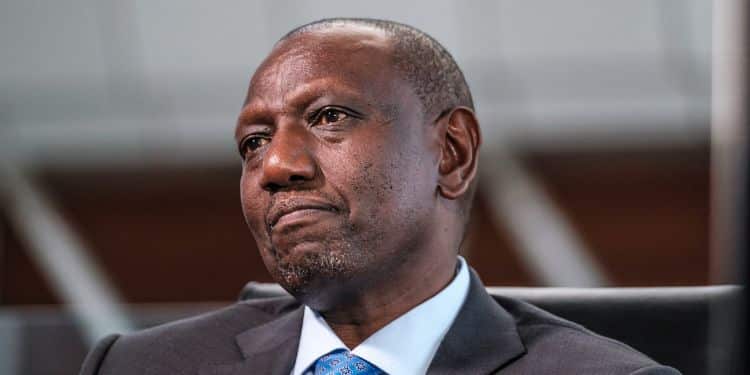The government has suffered yet another blow after the Court of Appeal ruled that the process followed in passing the Finance Act 2023 was flawed weeks after President William Ruto withdrew the Finance Bill 2024.
The Appellate Court in a ruling on Wednesday, July 31, stated that the enactment of the Finance Act, 2023 violated Articles 220 (1) (a) and 221 of the Constitution as read with sections 37, 39A, and 40 of the Public Finance Management Act (PFMA) which prescribes the budget making process.
“We uphold the finding by the High Court that concurrence of both houses in the enactment of the Finance Act, 2023 was not a requirement under Article 114,” reads part of the ruling.
“Having found that the process leading to the enactment of the Finance Act, 2023 fundamentally flawed and in violation of the Constitution, sections 30 to 38, 52 to 63 and 23 to 59 of the Finance Act, 2023 stand equally vitiated and therefore unconstitutional.”

The court emphasized that Parliament is obligated to provide reasons for adopting or rejecting proposals received from the public during the public participation process.
“A declaration is hereby issued that the failure to comply with this constitutional dictate renders the entire Finance Act, 2023, unconstitutional,” the ruling further read.
The court said the Finance Act which introduced post-public participation to amend the Income tax Act, Value Added Tax Act, Excise Duty Act and Miscellaneous Fees and Levies Act, are unconstitutional, null and void.
Also Read: Garissa University Attack: High Court Orders Govt to Compensate Families of Killed Students
The court mentioned that the act was not subjected to fresh public participation and was enacted in total violation of the constitutionally laid down legislative path.
Other acts introduced included the Kenya Revenue Authority Act, Retirement Benefits Act, Alcoholic Drinks Control Act of 2010, Special Economic Zones Act and Export Processing Zones Act
The court also upheld the High Court’s finding that specific sections of the Finance Act, 2023—particularly those amending the Kenya Roads Act, 1999—were unconstitutional, null, and void.
However, the court ruled that the prayer seeking the refund of taxes collected under sections 18, 21, 23, 24, 26, 32, 34, 38, 44, 47, 69, 72, 79, 80, 81, 82, 83, 85, 86, 100, 101, and 102 of the Finance Act, No. 4 of 2023 or under any other unconstitutional section of the Finance Act, No. 4 of 2023 be accounted for and refunded to the tax payers is refused.
It justified that it was not pleaded in the Petition before the High Court, therefore it was improperly before the Court; and legislative enactments enjoy presumption of constitutionality up to the moment they are found to be unconstitutional in terms of Article 165 (3) of the Constitution.
Also Read: Blow to Governors as Court Rules on Demands for Lifetime Pensions and Benefits
Furthermore, the court mentioned that the Parliament is obligated to provide reasons for adopting or rejecting any proposals received from members of the public during public participation process and a further declaration issued that the failure to comply with this constitutional dictate renders the entire.
The ruling follows a petition by Busia Senator Okiya Omtatah, and other Civil Organizations moved to court to stop the implementation of the Act.
They claimed its passage in Parliament will affect many Kenyans who are already overburdened by the current high cost of living.
Furthermore, the appellants argued that the Act had been passed without proper adherence to constitutional principles, particularly regarding public participation and legislative procedure.
After President Ruto declined to sign the Finance Bill 2024, the country reverted to the Finance Act, 2023 that allowed the government to continue collecting revenue.
Follow our WhatsApp Channel for real-time news updates!
https://whatsapp.com/channel/0029VaB3k54HltYFiQ1f2i2C














































![Odemba Names Provisional Harambee Starlets Squad For 2026 Wafcon Qualifiers [Full Squad] Odemba Names Harambee Starlets Squad For 2026 Wafcon Qualifiers](https://thekenyatimescdn-ese7d3e7ghdnbfa9.z01.azurefd.net/prodimages/uploads/2025/10/odemba-2025-360x180.png)




























